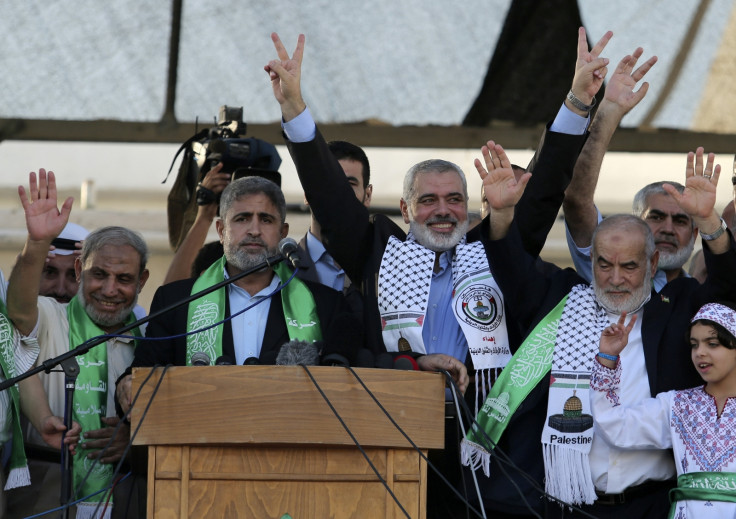Gaza War Sees Hamas Surge in Popularity Across Palestine

The popularity of the Islamist group Hamas among Palestinians in both the occupied West Bank and the Gaza Strip has surged after the seven-week conflict with Israel, according to a new poll.
The poll, which was published by the Palestinian Centre for Policy and Survey Research (PSR), showed that 61% of Palestinians would vote for Hamas' Ismail Haniyeh to be president if elections were held in the territories today.
In comparison, only 32% said that they would vote for Palestinian Authority President Mahmoud Abbas if elections were held today.
This data marks a surge for the militant group as a poll in June found that only 41% of Palestinians would support Haniyeh. In the same poll, Abbas was shown to have 53% support.
The polling center said that it was the first time since 2006 that a majority of Palestinians has voiced support for the Hamas leader.
However, PSR warned of a dip in popularity for the Hamas leader in the months following the conflict with Israel, as happened after previous conflicts with Israel in 2009 and 2012.
In other results revealed by the survey, 79% of Palestinians believe that Hamas won the conflict in Gaza, compared to 3% who believe Israel was victorious. Some 17% perceived both sides to be the losers.
A huge 86% of Palestinians also supported the firing of rockets from Gaza if Israel refused to end the blockade and "siege" on the territory. A majority of 72% favoured the adoption of Hamas' armed strategy against Israel in the West Bank to end the Israeli occupation.
Yet 25% said that armed militants should give up their weapons in the event that the blockade was ended by Israel and presidential elections held.
In the 50-day conflict over 2,100 Palestinians, mostly civilians, lost their lives; the Israeli death toll reached 68, all of whom but five were soldiers.
The poll was conducted in the West Bank and the Gaza Strip between 26-30 August 2014. The size of the sample was 1270 Palestinian adults interviewed face-to-face. The margin of error of the poll is 3%.
© Copyright IBTimes 2025. All rights reserved.






















